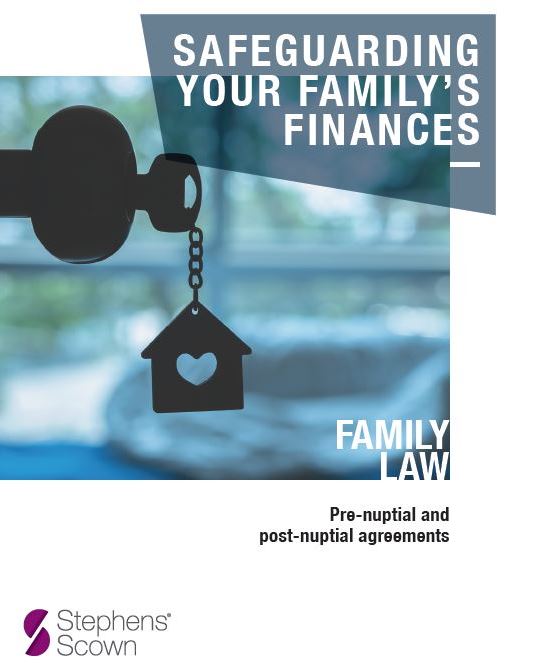Financial Provision for Children
When unmarried couples separate but have children together, they may need to consider whether there is sufficient financial provision to ensure the needs of their children can be adequately met, including housing, education or medical costs. Often, separating parents are unaware of the financial provision they can request for the benefit of their children and the options available to make sure the child’s needs are catered for.
Schedule 1 of the Children Act 1989
Whilst the primary carer of the relevant child will automatically be entitled to receive Child Maintenance from the non-resident parent, there are additional claims that can be made on behalf of a child for financial provision under Schedule 1 of the Children Act 1989.
Under the Act, a parent, guardian, special guardian or person with whom a child lives under a Child Arrangements Order can apply to the court for financial provision for a child, with the court having the power to make the following orders:
- lump-sum payments (for example to buy and/or furnish a home, clear debts and sometimes to fund legal fees)
- periodical payments (maintenance) in certain circumstances
- secured periodical payments (maintenance secured against a property)
- the transfer or settlement of property.
How does the court decide on financial provision for children?
When deciding whether to exercise its discretion to order financial provision for a child, the court will consider the following factors:
(a) the income, earning capacity, property and other financial resources the parties have or are likely to have in the foreseeable future;
(b) the financial needs, obligations and responsibilities each party has or is likely to have in the foreseeable future;
(c) the financial needs of the child;
(d) the income, earning capacity (if any), property and other financial resources of the child;
(e) any physical or mental disability of the child;
(f) the manner in which the child was being, or was expected to be, educated or trained.

Child maintenance – revisions and appeals
As previously mentioned, the primary carer of a child will automatically be entitled to receive Child Maintenance from the non-resident parent. The amount of Child Maintenance due to be paid can be calculated by the Child Maintenance Service (CMS).
There may be times where either the primary carer or non-resident parent dispute the amount which has been calculated, for example due to changes in circumstances or a miscalculation.
It is possible to appeal statutory child maintenance decisions to the First-Tier Tribunal, however, in some cases it may be necessary to first apply direct to the CMS for a ‘revision’ of a child maintenance decision before it can be appealed.
If you are still unhappy with the outcome of the reconsideration by the Child Maintenance Service or this step is not necessary, it may then be possible for a person with care or a non-resident parent to appeal the decision. There are time limits to appeal which need to be regarded carefully – usually within 1 month, however there may be exceptional circumstances where an extension will be granted.
How our specialists can support you
Helping people across England and Wales, Stephens Scown’s Family Law team are ranked in the top tier of Chambers and Partners and The Legal 500, the two leading independent legal guides.
Our specialist team of solicitors can advise in relation to the following for unmarried couples:
- Financial provision for children for unmarried couples;
- Child maintenance;
- Guide you through challenging a CMS decision;
- Cohabitation disputes and agreements;
- Arrangements for children.
Our experts can help navigate the process to ensure that a swift and appropriate outcome is achieved, whether by agreement, alternative dispute resolution, or by utilising the court process where necessary.
We also have a dedicated team of experts who advise in relation to divorce and matrimonial finances. The provision for children in the context of married couples and those in a civil partnership differs to situations where the parents remain unmarried.

How can we help you
"*" indicates required fields
By pressing send and providing your details you are agreeing to our Privacy Notice.
Once you submit your enquiry we will forward to the correct legal team to get in touch as soon as possible.
Related Services
- Inherited and Pre-Marital Assets
- Pensions in Divorce
- Claims Against Trusts
- Interim Maintenance
- Maintenance Agreements
Downloads
Team Leader












